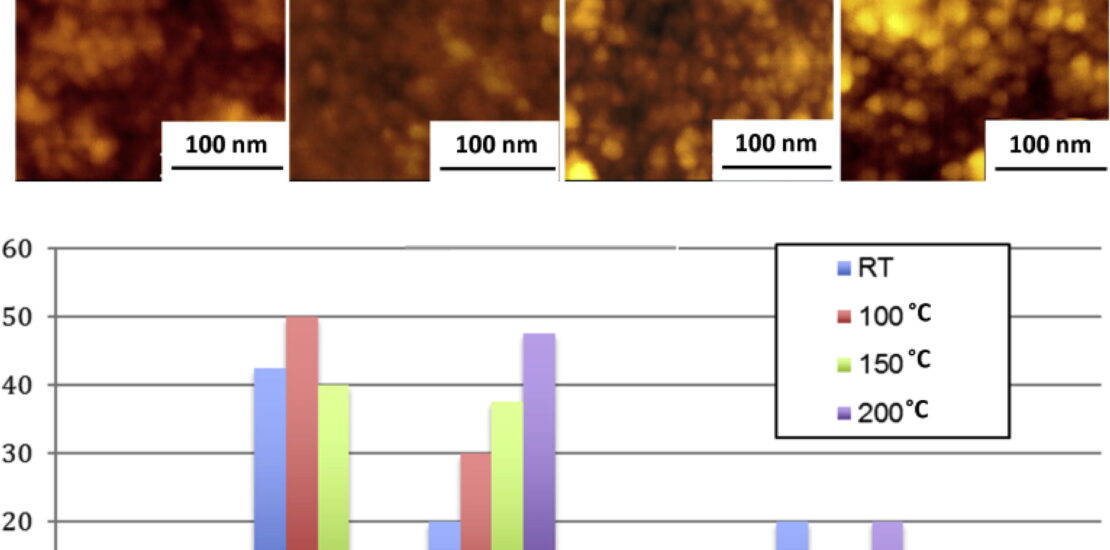- 23 October 2017
- Posted by: nemcatgroup
- Category: Publications

Flat TiO2 thin films were dip coated on contact lens polymer substrates (fluorinated ethylene propylene copolymer, FEP) using a hybrid sol-gel and annealed for 12 h at ≤200 °C. The grain sizes were in the range 10–20 nm but extensive shrinkage cracking was present. The crystallinities of the films annealed at ≤150 °C increased with increasing temperature gradually but only to a limited extent, although the crystallinity at 200 °C was significant. Recrystallisation resulted in decreased transparency, increased reflectivity, and a red shift to lower band gap. The methylene blue (MB) degradation was in the order 25 °C < 200 °C < 100 °C < 150 °C, indicating that the photocatalytic performance was dominated by crystallinity and exposed surface area, the latter of which decreased at 200 °C owing to partial submergence in the softened polymeric substrate. The films indicated antimicrobial capacity since they exhibited a maximal level of S. aureus destruction (85%) following 5 h of UV irradiation. The films also appeared to be microstructurally stable following wash testing in contact lens washing solution.
